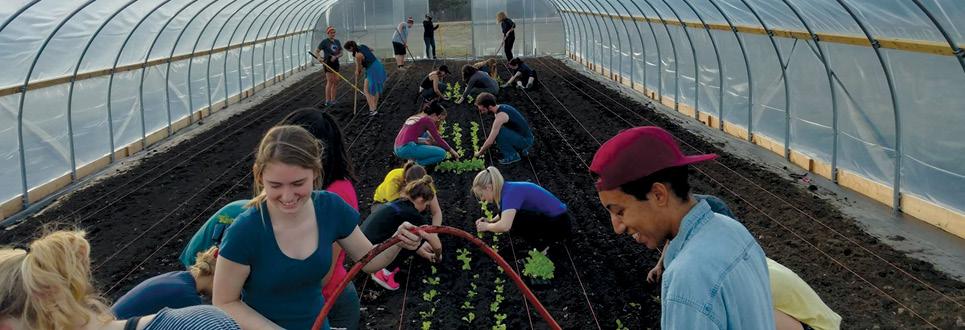Blog
Get the inside scoop about life at U-M and applying to Michigan from current student bloggers, Admissions staff, and guest faculty writers.

Get the inside scoop about life at U-M and applying to Michigan from current student bloggers, Admissions staff, and guest faculty writers.

How To Use Campus Resources and Cut Costs

I spent the winter 2022 semester in Dublin, Ireland. It was an incredible experience, but in the months leading up to it, I was terrified about the expenses that came with studying abroad. Dublin is an expensive place, and the program I was planning on attending at University College Dublin had a hefty price tag. My financial aid would cover part of the cost, but I had to figure out how to pay the rest, in addition to travel and leisure costs. If, like me, you don’t have thousands of dollars just sitting around, this post has some practical tips and tricks for studying abroad on a budget. I’m breaking it into two sections: funding for program costs and budgeting while abroad.
Budgeting for Program Costs
When I found out that I had been accepted to the Dublin program, I was so excited! But then I saw the finalized cost and momentarily panicked. For a few moments, all of my hopes for studying abroad came crashing down. While it’s important to consider which study abroad programs best suit your budget (most programs with the Center for Global and Intercultural Study, also known as CGIS, have a sample budget/program cost guide), if you have your heart set on a particular location, don’t let budget concerns stop you from pursuing it. I wanted to study in Ireland because I love Irish history and hoped to conduct research for my honors history thesis while abroad. The University College Dublin program was the only one in Ireland running in winter 2022, and I really wanted to make it work.
The first thing that I did, and what I definitely recommend, is reaching out to the Office of Financial Aid (OFA). If you receive any form of aid, ask about how your study abroad trip will impact your funds, and if there are any OFA scholarships for which you’re eligible.
Beyond the Office of Financial Aid, CGIS has LOADS of scholarships that you can apply for on M-Compass. Most of the applications are fairly quick, with the occasional short essay. I received a number of scholarships through CGIS that really helped me cover my program costs.
Another avenue to pursue is your school and major. The College of Engineering, the College of Literature, Science, and the Arts (LSA), and many of the other colleges within U-M often have major or program-specific scholarships. For example, I received scholarships from the LSA, the History Department, and the Residential College. I am a part of these three entities, and I had to write a few essays about why I wanted to study in Ireland and how my goals in Ireland would support the study and/or research of my majors. I recommend talking to your major (and minor) advisors, as they might have suggestions for scholarships for which you can apply. Do note that researching which scholarships to apply to takes time. It also takes time to write and revise essays, so you’re going to want to get started as soon as you can. Even before scholarship applications open, you can reflect on why you’re hoping to study abroad and what you hope to gain from the experience. I also highly recommend using Google Calendar or a personal planner to keep track of scholarship deadlines! It can be difficult to remember everything, especially if you’re applying during the school year (for example, I was applying for scholarships during the fall 2021 semester before I went to Ireland in winter 2022).
Lastly, while this might go without saying, look into getting an on-campus job to help raise money for your travels. Especially if you are an incoming or new student: You might not have plans to study abroad until later in your college career, but even saving a little bit of money now can make a huge difference. U-M is a big school, so there are organizations and entities within it that are always hiring.
Tips for Spending While Abroad
Covering program costs is just one part of budgeting for your time abroad. During your program-specific orientation, you’ll likely also talk about budgeting your monthly expenses while abroad. However, it’s really difficult to anticipate unexpected costs. But one thing you can do is try your best to be thrifty.
One thing you’ll likely hear in your study abroad orientation is to be prudent about how often you go out to eat and drink with friends. While the occasional night out won’t hurt your pocketbook too much, if “clubbing” or the like becomes a regular part of your days, you might find yourself pinching pennies. So definitely treat going out for food and drink with moderation. While abroad, I maintained similar habits to my Ann Arbor habits. I didn’t buy food or go out with friends super often; for me, it’s more reserved for special occasions or once in a while on the weekends. It’s what I can afford and what suits my lifestyle. Reflect on your spending habits before you go abroad, so that you can know what you can feasibly spend on leisure while abroad.
Dublin in particular is an expensive place, but I managed to save money by being strategic about where I shopped and how I leisured. Asking locals about cheaper grocery stores (for example, Aldi and Lidl are located in many European countries and offer cheaper alternatives). You can also ask locals where they like to dine, as they’ll likely opt for the less touristy areas of town (which might be a few dollars cheaper).
When it comes to other forms of leisure, think outside the box! Some of the most enjoyable days I spent in Ireland didn’t cost me anything: I visited local beaches and public parks, went for hikes, or browsed bookstores and libraries in town. I also took advantage of Dublin’s various free museums. Many museums across Europe in particular are free or discounted for students (you just have to show a student ID), or they offer free admission on certain days each month. Your school or program abroad will also likely have free or discounted outings, which you should definitely take advantage of!
There are loads of student deals beyond museums. I recommend asking if there is a student discount at any store, theater, or venue. Many countries also have discounted public transport for students. When I was in Dublin, I had a student public transport card that made it significantly cheaper to travel on any Dublin bus, train, or tram.
Many students fly or take trains to nearby countries while abroad. Companies like RyanAir offer very cheap tickets (you can often only bring a small backpack though, so pack light!) and you can find cheap accommodation in hostels (I recommend the app HostelWorld). However, I would caution against filling every weekend with extravagant travel plans. While it’s nice to see nearby countries (especially if you’re in Europe, where they’re all close together), the costs of food, lodging, and transportation do add up. You’re already paying for accommodation in your host country, so take advantage of your time there! I explored so much of Dublin and Ireland, and I’m very glad I did. I feel like I was able to truly enjoy my time abroad and live like a local by doing so. I traveled during school holidays (like going to England for spring break) and then spent a couple of weeks after my program traveling through France and Spain. Not having to go back and forth between countries saved me a lot of time and money.
Another thing to consider is how you’re going to spend money while abroad. Before I left, I got a credit card that didn’t have any exchange fees, but I also brought some cash and my debit card as a back-up. Avoid ATMs that have large fees as much as possible, and always be careful with carrying around money.
Before you go, you’ll also want to think about your phone plan while abroad. Many people get a cheap plan while abroad (swapping out their SIM card), but my current phone plan actually included international texting, so I kept it. I turned off my data roaming most of the time, and used services like Zoom and Whatsapp for calling when I had WiFi. My phone could still make phone calls, but it was more expensive so I avoided it as much as possible.
Lastly, purchase your flights as soon as you have enough information to do so! Websites like StudentUniverse sometimes have better deals for students, but definitely shop around. If you’re unsure about travel dates, make sure you buy flexible tickets.
That’s it for my biggest tips! Studying abroad is more feasible than you might think. You just have to think ahead and take the time to research your most affordable options. Before and during your time abroad, there’s bound to be unexpected expenses. But by planning ahead as much as possible and saving money wherever you can, you’ll be able to respond to those unexpected expenses with less stress. Happy travels!

Bailey Burke is a senior in the College of Literature, Sciences, and the Arts, pursuing majors in history and creative writing & literature, with a minor in Spanish. She is from Grand Rapids, Michigan. Bailey is in the Residential College, where she founded RC Letters Forum. She is also involved in campus ministry with St. Mary Student Parish and the Kateri Institute for Catholic Studies. She studied abroad in winter 2022 in Dublin, Ireland, and is hoping to travel after she graduates. In her free time, you can find Bailey reading, writing letters, and drinking tea.